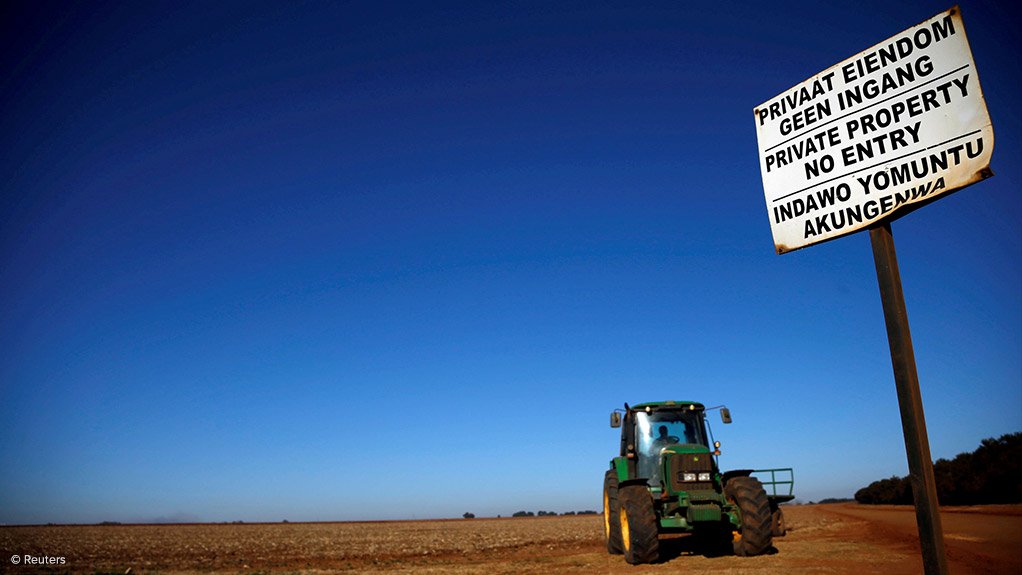Law firm Werksmans on Tuesday unpacked the recommendations made by the Presidential Expert Advisory Panel on Land Reform and Agriculture in a seminar, led by Werksmans director and Land Reform, Restitution and Tenure Law Practice head Bulelwa Mabasa.
She was the only attorney on the advisory panel, which was appointed by President Cyril Ramaphosa to provide expert advice on land reform.
Mabasa explained at the seminar on Tuesday that land reform was an intrinsic part of transformation in South Africa.
She said the country needed a “revolutionary way of looking at tenure”, which she identified as “recognisable rights” and important in the ability to be legally recognised and legally registrable.
“There is an overwhelming majority of South Africans that don’t have security of tenure. The current system excludes an overwhelming majority of them so tenure reform is another big idea, or key message, that comes out of the report,” said Mabasa.
She said specific terms of reference assisted the panel while working on the land reform report.
The expert panel was expected to provide a unified policy perspective on land reform, and was asked to consider for wider consultations circumstances in which expropriation without compensation could be applied, procedures to be followed, instruments to enforce policy on redistribution and a policy on compensation.
Climate Change
She said as the world was experiencing climate change, it was important for the panel to base it work on local and international studies, and added that land would be different 20 years from now.
She said the panel was mindful of the 2016 new urban agenda which was adopted by national governments at the United Nations Conference on Housing and Sustainable Urban Development, commonly referred to as Habitat III.
The new urban agenda offers a shared division for ending poverty, addressing inequality and sustainability through planning and management of human settlements of all sizes.
“The urban agenda issue is not just a unique South African issue. This is a global issue, affecting many developed countries and developed countries, regarding making land available…,” she explained.
Furthermore, Mabasa said the panel also looked at the National Development Plan which agitated for a response to deal with spatial patterns.
Challenges
Mabasa said there were a few pieces of legislation which were problematic.
This includes the Prohibition of Subdivision Act 70 of 1990, which prohibits the subdivision of agricultural land. She said it was a “devil” in practice because it affected a small farm holder with a family farm as much as it affected a huge conglomerate.
She said the Prohibition of Land and Assistance Act 126 of 1993 was completely at odds with administrative law principles and pointed out that it gave the respective Minister undue powers to designate and to develop land without any transparency.
“The Minister can develop land for an unidentified group of people. There is no transparency and there is no criteria on who should benefit and it doesn’t satisfy the constitutional master,” Mabasa explained.
The Ingonyama Trust Act 3 of 1994 undermined democratic principles and was a barrier for women, especially after marriage, she said.
“As a panel, we felt that the Ingonyama Trust cannot continue to survive within the context of apparent law and apparent constitutional democracy.”
She said the country needed a holistic land reform policy, a land framework Bill, a strongly capacitated land rights commission dealing with distribution, and a clear definition of who must be allocated land.
“We have not even spoken about who are we talking about. The beneficiary selection is important. That is the work of government and it depends on what vision we have for the country,” Mabasa said.
She stressed the need for courts to assist in terms of distribution because all cases were based on different merits.
She said the country’s current institutions were not suited to implement land reform in a way that South Africans wanted. She said the country did not have indicators of success for what land reform was supposed to look like in the end.
“Land reform is such an important constitutional imperative. If you don’t deliver anything in this country, at least land reform must be,” she said.
EMAIL THIS ARTICLE SAVE THIS ARTICLE ARTICLE ENQUIRY
To subscribe email subscriptions@creamermedia.co.za or click here
To advertise email advertising@creamermedia.co.za or click here











